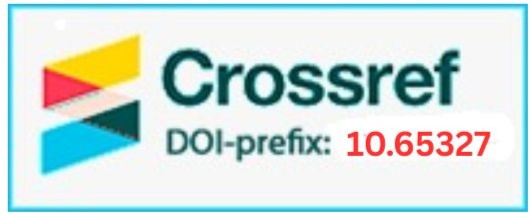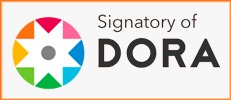Automated Ultrasound Image Segmentation Using AI: A Step Toward Non-invasive Kidney Disease Monitoring
DOI:
https://doi.org/10.65327/kidneys.v14i4.566Keywords:
Kidney ultrasound, Automated segmentation, Threshold-based method, Renal boundary detection, Ultrasound image analysis, Non-invasive monitoringAbstract
Non-invasive kidney evaluation through ultrasound imaging is quite common, but there is always a challenge in manual analysis of the kidney boundaries because of noise, brightness variation, and dependence on operators. The paper will examine a basic threshold-based segmentation algorithm to improve kidney boundaries in ultrasound images and their performance under different levels of image quality. Twenty-five kidney ultrasound images were pre-processed under the standardization and noise-reduction steps, and an automated boundary was further created through pixel-intensity thresholding. The standard of comparison was made of manual boundaries. The findings showed that the automated process had a close correspondence with manual contours in the majority of the cases, especially with the images that had moderate to high clarity. Comparison of the clarity groups revealed that there was a slight deviation of good quality images, moderate deviation in quality scanners, and higher variation amongst areas where noise or shadowing was evident. Morphological analysis also confirmed that the automated result did not cause significant changes in the general kidney anatomy, besides the fact that certain areas that had weak contrast had little differences. Also, the process of segmentation improved the visualization of structures by decreasing the effect of speckle interference and accentuating structure boundaries. On the whole, it can be concluded that an easy-to-use threshold-based segmentation method can offer a good and understandable kidney boundary extraction that can serve as a practical alternative to routine monitoring and clinical decision support, particularly in resource-limited environments.
Downloads
References
Liang X, Du M, Chen Z. Artificial intelligence-aided ultrasound in renal diseases: a systematic review. Quantitative Imaging in Medicine and Surgery. 2023 Apr 20;13[6]:3988.
Xu T, Zhang XY, Yang N, Jiang F, Chen GQ, Pan XF, Peng YX, Cui XW. A narrative review on the application of artificial intelligence in renal ultrasound. Frontiers in Oncology. 2024 Mar 1;13:1252630.
Khan R, Xiao C, Liu Y, Tian J, Chen Z, Su L, Li D, Hassan H, Li H, Xie W, Zhong W. Transformative deep neural network approaches in kidney ultrasound segmentation: empirical validation with an annotated dataset. Interdisciplinary Sciences: Computational Life Sciences. 2024 Jun;16[2]:439-54.
Zheng Q, Warner S, Tasian G, Fan Y. A dynamic graph cuts method with integrated multiple feature maps for segmenting kidneys in 2D ultrasound images. Academic radiology. 2018 Sep 1;25[9]:1136-45.
Yin S, Peng Q, Li H, Zhang Z, You X, Fischer K, Furth SL, Tasian GE, Fan Y. Automatic kidney segmentation in ultrasound images using subsequent boundary distance regression and pixelwise classification networks. Medical image analysis. 2020 Feb 1;60:101602.
Song Z, Liu X, Gong Y, Hao T, Zeng K. A Two-Stage Framework for Kidney Segmentation in Ultrasound Images. InInternational Conference on Neural Computing for Advanced Applications 2023 Jul 7 [pp. 60-74]. Singapore: Springer Nature Singapore.
Zheng Q, Warner S, Tasian G, Fan Y. A dynamic graph cuts method with integrated multiple feature maps for segmenting kidneys in 2D ultrasound images. Academic radiology. 2018 Sep 1;25[9]:1136-45.
Khan R, Xiao C, Liu Y, Tian J, Chen Z, Su L, Li D, Hassan H, Li H, Xie W, Zhong W. Transformative deep neural network approaches in kidney ultrasound segmentation: empirical validation with an annotated dataset. Interdisciplinary Sciences: Computational Life Sciences. 2024 Jun;16[2]:439-54.
Chen SH, Wu YL, Pan CY, Lian LY, Su QC. Renal ultrasound image segmentation method based on channel attention and GL-UNet11. Journal of Radiation Research and Applied Sciences. 2023 Sep 1;16[3]:100631.
Correas JM, Anglicheau D, Joly D, Gennisson JL, Tanter M, Hélénon O. Ultrasound-based imaging methods of the kidney recent developments. Kidney International. 2016 Dec 1;90[6]:1199-210.
Levin A, Stevens PE, Bilous RW, Coresh J, De Francisco AL, De Jong PE, Griffith KE, Hemmelgarn BR, Iseki K, Lamb EJ, Levey AS. Kidney Disease: Improving Global Outcomes [KDIGO] CKD Work Group. KDIGO 2012 clinical practice guideline for the evaluation and management of chronic kidney disease. Kidney international supplements. 2013 Jan 1;3[1]:1-50.
van den Berg CW, Dumas SJ, Little MH, Rabelink TJ. Challenges in maturation and integration of kidney organoids for stem cell-based renal replacement therapy. Kidney International. 2025 Feb 1;107[2]:262-70.
Gulati M, Cheng J, Loo JT, Skalski M, Malhi H, Duddalwar V. Pictorial review: Renal ultrasound. Clinical Imaging. 2018 Sep 1;51:133-54.
Singla RK, Kadatz M, Rohling R, Nguan C. Kidney ultrasound for nephrologists: a review. Kidney Medicine. 2022 Jun 1;4[6]:100464.
Rowland J, Akbarov A, Eales J, Xu X, Dormer JP, Guo H, Denniff M, Jiang X, Ranjzad P, Nazgiewicz A, Prestes PR. Uncovering genetic mechanisms of kidney aging through transcriptomics, genomics, and epigenomics. Kidney international. 2019 Mar 1;95[3]:624-35.
Fleig S, Magnuska ZA, Koczera P, Salewski J, Djudjaj S, Schmitz G, Kiessling F. Advanced ultrasound methods to improve chronic kidney disease diagnosis. npj Imaging. 2024 Jul 25;2[1]:22.
Alex DM, Abraham Chandy D, Hepzibah Christinal A, Singh A, Pushkaran M. YSegNet: a novel deep learning network for kidney segmentation in 2D ultrasound images. Neural Computing and Applications. 2022 Dec;34[24]:22405-16.
Zuo Y, Li J, Tian J. A Segmentation Network with Two Distinct Attention Modules for the Segmentation of Multiple Renal Structures in Ultrasound Images. Diagnostics. 2025 Aug 7;15[15]:1978.
Yin S, Peng Q, Li H, Zhang Z, You X, Fischer K, Furth SL, Tasian GE, Fan Y. Automatic kidney segmentation in ultrasound images using subsequent boundary distance regression and pixelwise classification networks. Medical image analysis. 2020 Feb 1;60:101602.
Teng G, He Y, Zhao H, Liu D, Xiao J, Ramkumar S. Design and development of human computer interface using electrooculogram with deep learning. Artificial intelligence in medicine. 2020 Jan 1;102:101765.
Villongco CT. Patient-specific Computational Models of Dyssynchronous Heart Failure and Cardiac Resynchronization Therapy for Clinical Diagnosis and Decision Support. University of California, San Diego; 2015.
Gulati M, Cheng J, Loo JT, Skalski M, Malhi H, Duddalwar V. Pictorial review: Renal ultrasound. Clinical Imaging. 2018 Sep 1;51:133-54.


 ISSN 2307-1257
ISSN 2307-1257 ISSN 2307-1265
ISSN 2307-1265



















